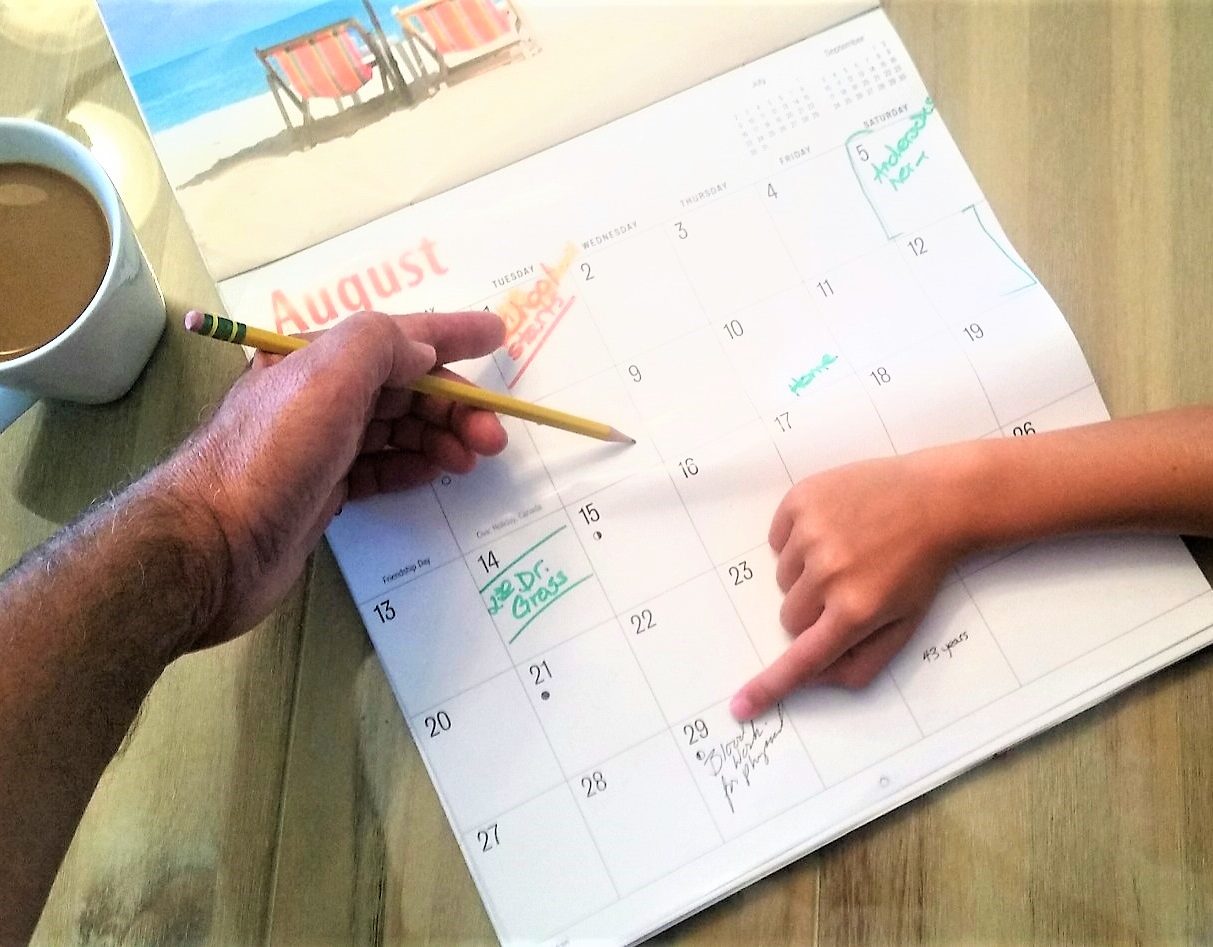
There’s no question: sometimes life gets busy. When it comes to balancing your child’s homework assignments, extracurricular activities, birthday parties, exams, and more, it is impossible to keep it all top of mind. But the good news is, you don’t have to. In fact, the more we write down, the more space is left in our working memory for the stuff we need to remember.
The same is true for our children. By using a physical day planner or even a digital calendar, students can develop and practice essential time management and prioritization skills. Plus, having a visual reminder can help children keep track of commitments and help them understand how to manage their time. With a little planning and structure, your child will feel more in control and ready to succeed. Here are some tips to help them get started:
Use a Planner
Choosing between physical and digital planners can come down to personal preference, but there are benefits to both. Digital calendars are useful and flexible because they can be shared across multiple devices, making it easy to input information as needed. Students can set notifications to alert them about events or set timers easily for daily reminders. However, because they are most commonly used on phones, some students may struggle with the added potential for distraction. Physical calendars can be used anywhere, even when devices are not allowed or not easily accessible. Studies show that students who handwrite tasks are more likely to commit the information to memory than those who type. Physical planners also allow for checklists, note-jotting, and creativity, but can be misplaced, lost, or damaged more easily.
Take Stock of the Big Picture
Help kids create a routine around looking ahead by establishing a time at the start of each week to look at the upcoming three to four weeks. At this stage, they should note big stuff like appointments, games, practices, exams, and project deadlines. Doing this prepares kids to create a realistic weekly and daily plan. Ideally, students record those sorts of events as they learn about them.
This weekly routine is also a chance to break up long-term assignments into chunks, create mini-deadlines, and establish study plans. For example, for a big assignment, one could write:
Monday – start research
Tuesday- complete outline
Wednesday- rough draft
Doing this at the start of the week prepares students for which days will be busy and gives them the opportunity to shift their academic and social responsibilities accordingly.
Create a Daily Plan
Encourage your child to write down the particular details of a task for the day using time slots. Ask them to be specific. It is more likely that your child will complete a task if they know exactly what they are getting into. For example, rather than writing “study for test,” have them write down the details, such as the subject, the chapters to be reviewed, how much time will be required, etc. When a task has been completed, give kids the satisfaction of a job well done by reminding them to cross it off the list. (It really is the best feeling ever!)
Let Kids Personalize Their Success
Color coding is a great way to stay organized and give your child control over what works for them. This can be done with subjects, activities, or both. Sticky notes, colored pencils, or highlighters are helpful tools. It doesn’t have to be fancy, but the visual representation will make it easy for kids to know what they have coming up. Some online apps will even do this for them. Just remember to help them be consistent in their approach.
Planning is a skill that may come more naturally to some but can be learned along the way. By creating, maintaining, and following through with a planning system, students are much more likely to stay on task and meet deadlines without parental oversight. Developing these skills when children are young will help the good habits stick, assisting their transition into new experiences and environments with less stress and more balance.
Looking for a more personalized approach to planning support for your child? Reach out to our executive functioning coaches for information and a consultation.




